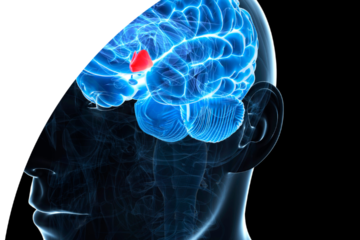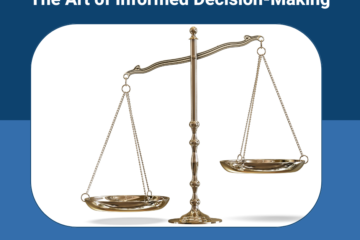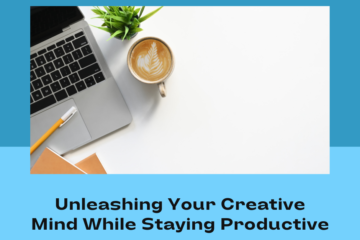
Introduction:
Making choices is a big part of what we do every day. From deciding what to wear in the morning to big decision making in life, our ability to make decisions is a key part of our future. But have you ever really thought about how good you are at making decisions? Do the decisions you make lead you to success and happiness, or do they often make you feel bad and upset? In this piece, we’ll dig deep into the topic of making decisions. We’ll talk about how important it is, what factors affect it, and how to get better at this important skill.
The Significance of Effective Decision Making
Making good decisions is the key to success in both your personal and business life. Whether you’re a manager in charge of a team or a person making choices for your own life, the decisions you make can have a big impact. A well-thought-out choice can lead to good results, more work, and a higher level of total satisfaction. On the other hand, making bad decisions can lead to lost chances, spent resources, and even long-term problems. So, if you want a better future, you need to evaluate and improve your ability to make decisions.
Factors Influencing Decision Making
Emotional intelligence:
Emotional intelligence is one of the most important factors in making decisions. The ability to understand and control your emotions and to feel what other people are feeling can have a big impact on the decisions you make. People who are emotionally intelligent are more likely to make choices that are balanced and take both logical and emotional factors into account.
Cognitive Biases:
Our thoughts can be affected by a number of cognitive biases that can make it hard for us to make good decisions. There are many biases that can affect how decisions are made. Confirmation bias, availability heuristic, and anchoring bias are just a few examples. Understanding and reducing these biases can help you make decisions that are more objective and logical.
Information Overload:
In the digital age we live in now, we are constantly flooded with too much information. Having access to a lot of information can be helpful, but it can also make it harder to decide what to do. To make good decisions, you need to know how to sort material and put it in order of importance.
Risk Tolerance:
People have different amounts of risk tolerance, which can have a big effect on how they make decisions. Some people have a natural tendency to take risks, while others prefer to be more careful. If you know how you feel about danger and how it affects your decisions, you can make better ones.
Improving Your Decision-Making Skills
Seek Different Perspectives:
When making a hard choice, it can be helpful to get ideas from many different places. Ask for advice from coworkers, friends, or teachers who can give you a different point of view and help you see things you might have missed. Accepting different points of view can help you make better choices.
Consider Long-Term Consequences:
It’s easy to focus on short-term gains or instant gratification, but it’s important to think about the long-term effects of your choices. Think about how your decisions fit with your values and long-term goals. This point of view can help you make choices that will help you in the long run.
Practice Critical Thinking:
Being able to think critically is a useful skill that can help you make better decisions. You can make better decisions by carefully analyzing information, questioning assumptions, and thinking about other possible solutions. Puzzles, arguments, and strategic games are all things that can help you think critically.
Learn from Mistakes:
Everyone makes mistakes, and the only way to grow is to see them as chances to learn. Think about decisions you’ve made in the past that didn’t turn out the way you wanted and figure out what went wrong. By learning from your mistakes, you can avoid making them again and get better at making decisions.
Conclusion:
In the end, making good decisions is a skill that can be polished and improved with effort. Making good decisions gives people the power to move through life with confidence and direction. If you know what factors affect decision making and take steps to improve this skill, you can make decisions that help you reach your goals and dreams. Don’t forget that when you’re making decisions, you shouldn’t try to be perfect. Instead, you should try to make progress. Join the journey of self-improvement and watch as your ability to make good decisions soars.
Test Your Decision Making:
Certainly! Here are 20 questions to test your decision-making skills. Each question will have three options: “Not at all,” “Rarely,” and “Sometimes.” Please select the option that best describes your decision-making behavior in each scenario.
1. Do you create a positive and open environment where everyone’s opinions and ideas are encouraged?
a) Not at all b) Rarely c) Sometimes
2. How often do you brainstorm and generate multiple potential solutions when faced with a decision?
a) Not at all b) Rarely c) Sometimes
3. Do you carefully evaluate the advantages and disadvantages of each potential solution before making a decision?
a) Not at all b) Rarely c) Sometimes
4. How often do you feel confident and decisive when making a final decision?
a) Not at all b) Rarely c) Sometimes
5. After making a decision, do you regularly check if it is achieving the desired outcomes?
a) Not at all b) Rarely c) Sometimes
6. How often do you communicate your decisions clearly and effectively to those affected by them?
a) Not at all b) Rarely c) Sometimes
7. Do you actively listen to feedback and make adjustments to your decisions when necessary?
a) Not at all b) Rarely c) Sometimes
8. How often do you seek input and perspectives from others before making a decision?
a) Not at all b) Rarely c) Sometimes
9. Do you consider the potential risks and uncertainties associated with each decision before proceeding?
a) Not at all b) Rarely c) Sometimes
10. How often do you analyze the long-term consequences of your decisions?
a) Not at all b) Rarely c) Sometimes
11. Do you give yourself enough time and space to think through important decisions?
a) Not at all b) Rarely c) Sometimes
12. How often do you consult relevant data and information to inform your decision-making process?
a) Not at all b) Rarely c) Sometimes
13. Do you take into account ethical considerations when making decisions?
a) Not at all b) Rarely c) Sometimes
14. How often do you involve key stakeholders in the decision-making process?
a) Not at all b) Rarely c) Sometimes
15. Do you consider the potential impact of your decisions on different departments or teams?
a) Not at all b) Rarely c) Sometimes
16. How often do you seek feedback and input from experts or individuals with specialized knowledge?
a) Not at all b) Rarely c) Sometimes
17. Do you consider the financial implications and feasibility of your decisions?
a) Not at all b) Rarely c) Sometimes
18. How often do you trust your instincts or intuition when making decisions?
a) Not at all b) Rarely c) Sometimes
19. Do you make an effort to learn from past decisions and apply those lessons to future situations?
a) Not at all b) Rarely c) Sometimes
20. How often do you follow through on implementing your decisions effectively?
a) Not at all b) Rarely c) Sometimes
Score Interpretation:
If you mostly selected “Not at all” or “Rarely,” it suggests that you may need to work on improving your decision-making skills in the respective areas.
If you mostly selected “Sometimes,” it indicates that you have some awareness and practice in the decision-making process, but there is room for further development and refinement.
Remember that this quiz provides a general indication and is not a comprehensive assessment of your decision-making abilities. It’s always beneficial to reflect on your decision-making strategies and seek opportunities for growth and improvement.
FAQs
1. How do feelings affect the way we make decisions?
A: Emotions are a big part of how we make decisions. They can change how we think, what we value, and how much risk we are willing to take. Emotional intelligence helps people deal with their feelings and make choices that are balanced by taking both rational and emotional factors into account.
2. What are some common cognitive flaws that can make it hard to make the right choice?
A: Some common cognitive biases are confirmation bias (preferring information that backs up what we already believe), availability heuristic (relying on information that is easy to find), and anchoring bias (putting too much weight on the first piece of information we see). If you know about these biases and try to get rid of them, you can make better decisions.
3. Can people learn to make better decisions?
A: Absolutely! Practice and knowing yourself can help you make better decisions. People can improve their ability to make decisions and make better choices by looking for different points of view, thinking about long-term effects, practicing critical thought, and learning from their mistakes.



0 Comments